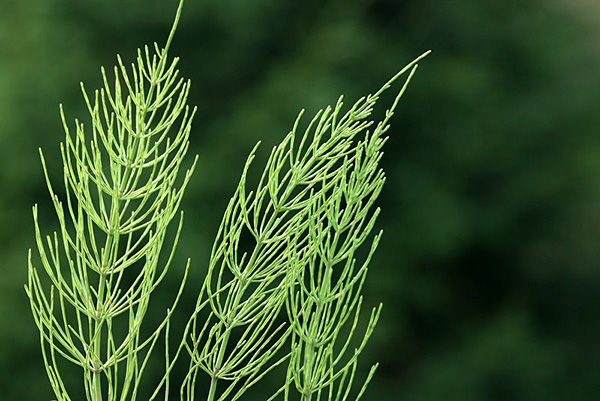– Herbs with essential diuretic actions: horsetail (Equisetum), knotweed (Fallopia japonica), couch grass (Elymus repens), tails and sour cherries, corn silk. Plants associated with anti-infective diuretic effect: cranberry, uva ursi (Arctostaphylos uva-ursi);
– Herbal diuretics associated with inflammatory effects: cranberry, blueberry, licorice (Glycyrrhiza glabra), liquorice, pine nuts and poplar bud, leaves and root of marshmallow (Althaea officinalis), juniper (common juniper), uva ursi (Arctostaphylos uva-ursi), pine, nettle (Urtica dioica), rosehip, artichokes (Cynara cardunculus), leaves of birch;
– Herbs associated with emollient diuretic effects : Flower-of-an-Hour (Hibiscus trionum), corn silk, marshmallow (Althaea officinalis), tilia, coltsfoot (Tussilago farfara), plantago, mullein (Verbascum), lungwort (Pulmonaria officinalis), dense-flowered mullein (Verbascum densiflorum), pine nuts;
– Herbs associated with astringent diuretic effects: cranberry, uva ursi (Arctostaphylos uva-ursi), bilberry, common agrimony (Agrimonia eupatoria);
– Herbs associated with cleansing diuretic effects: artichoke (Cynara cardunculus), burdock (Arctium lappa), dandelion (Taraxacum officinale), heartsease (Viola tricolor), fraxinus, birch, knotweed (Fallopia japonica), couch grass (Agropyrum repens), elder (Sambucus), spiny restharrow (Ononis spinosa), yellow bedstraw (Galium verum);
– Herbs associated with anti-diabetic diuretic effects: burdock (Arctium lappa), artichoke (Cynara cardunculus), nettle (Urtica dioica), bilberry leaf, broad bean (Vicia faba);
– Antispasmodic and easy diuretic herbs : couch grass rhizomes, broad bean (Vicia faba), corn silk, hop cones, lavender flowers;
– Herbs with anti-infective effect: volatile oil of juniper, coriander (Coriandrum sativum), thyme, wild marjoram (Origanum vulgare), yarrow flowers (Achillea millefolium), elder (Sambucus) , cranberry leaf, wild strawberry (Fragaria vesca), blueberries, blackthorn fruit (Prunus spinosa), pine nuts and poplar bud, southernwood (Artemisia abrotanum).
It is recommended using combinations of several plant species, given their different mechanism of action, the potentiating of diuretic or anti-infective effect.
Horsetail, an effective remedy for urinary tract infections:
The horsetail is indicated in urinary infections due to the intense diuretic action, and secondary, because of tis anti-inflammatory action and balancing of the immune system. It increases resistance to infection; it has a remineralizing action, which makes it extremely useful in chronic urinary infections accompanied by anemia; recovering all infectious conditions; because its hemostatic action is indicated in hemorrhagic cystitis or pyelonephritis hematuria.
Associated actions:
– Elimination of the excess salt and water and other fluid retention states (heart disease, kidney, liver);
– Expectorant, bronchodilatory (indicated in respiratory infections);
– Gastric protective effect (as in ulcer disease);
– Strengthening the connective tissue (which gives anti-inflammatory effect, with rheumatic properties).
Increases vitality, nourishes and sustains the basal structure of the organism with both nutrients and principled active catalyst (traces elements that act as coenzymes).
The plant is administered as a decoction: 4-5 teaspoons in 1.5 liters of water (to drink during the day), cold maceration for 10-12 hours, in the same proportions as above, has increased efficiency; sitz baths have a beneficial effect on cystitis and pyelonephritis.

